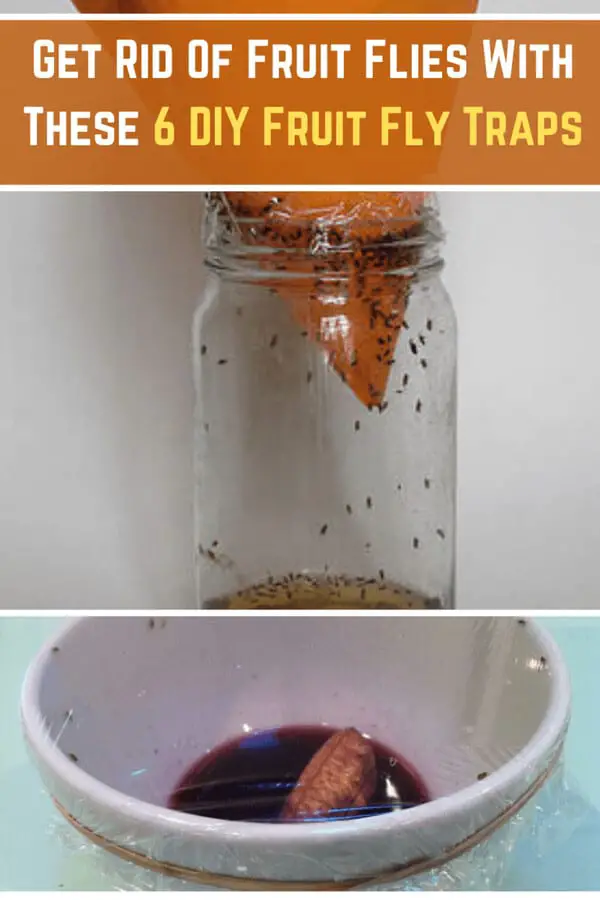Table Of Content
It is non-toxic to humans but can be allergic to cats and dogs. Fruit flies are only a small fraction of an inch long, but once they infest your kitchen, it's almost impossible to avoid them. Fruit flies are known to spread germs, so stop them in their tracks with this clever and stylish food cover by Adairs. Fruit flies are opportunists and will sniff out any chance to find a suitable feeding (and breeding) ground to thrive in. From secret breeding grounds to elimination techniques, find out what really works. Sarah is a lifestyle and entertainment reporter for TODAY who covers holidays, celebrities and everything in between.

How do you prevent fruit flies?
Fruit flies at all stages of development survive off of fruits. Freshly hatched larvae survive exclusively off of the food that they’re laid on. This is one of the main reasons they’re considered a common household pest. Pour a small amount of apple cider vinegar into a Mason jar or glass. Cover with plastic wrap and poke a few tiny holes over the top. Don't use white vinegar—the scent of apple cider vinegar is what attracts the flies.
Making Traps
Fruit flies are orange in colour with either red, or black, eyes. They have translucent wings, feathery antennae and large, bright red or black eyes. They don't need to be squeaky clean, so a quick rinse should do the trick, although do check with your local authority in case they have different requirements. Check our picks of the best carpet cleaners and best carpet stain removers. "Fruit flies can definitely be found all over the country, realistically all over the world." Schumm tells TODAY.com.
How to get rid of fruit flies in indoor plants
In some cases, these measures are enough to help you get rid of these flies. Below are some effective remedies that you can use to get rid of the fruitflies at home. Some of these remedies are household remedies, and some require money. Fruit flies are about an eighth of an inch long, have red eyes (though some species have darker eyes) and are light brown with dark rings around their abdomen.
How to Get Rid of Fruit Flies and Gnats in Your House
Mix equal parts balsamic vinegar and warm water in a glass jar and add a drop of dishwashing liquid. A fruit fly infestation could also start in the cage of your rabbit, guinea pig or any other small animal that feasts on fruit and veg. The fruit flies are naturally attracted to the scent of apples from the cider vinegar. Because of this, they head straight for the liquid, but the bubbles formed on top of the pint glass means they are unable to fly back out. Once they take up residence, it can feel that it's almost impossible to get rid of these pesky insects. But this simple trick should see the number of fruit flies swarming around your kitchen drop dramatically – with very little effort.
Keep a Clean Kitchen
There are plenty of solutions to rid your home of pesky fruit flies, especially if you don't want to buy store-bought traps. We asked cleaning experts to share their best tips and methods for how to kill fruit flies instantly using ingredients you may already have in your kitchen. Wash the produce with clean water immediately after arriving home to remove any potential eggs or larvae.
Buzz kill: Auburn researcher offers advice for ridding homes of pesky fruit flies - Office of Communications and Marketing
Buzz kill: Auburn researcher offers advice for ridding homes of pesky fruit flies.
Posted: Thu, 01 Jul 2021 07:00:00 GMT [source]
Here's how to prevent and get rid of fruit flies and gnats indoors. Another popular DIY option is trapping the flies in a bottle—a beer, fruit juice, or wine bottle with just the dregs left works perfectly. Put plastic wrap over the bottle’s opening, secure it in place with a rubber band, then poke a few small holes in the top. Once the flies climb in, lured to the sweet scent of fermenting grapes, they’ll be stuck and eventually die. Brightly coloured sticky traps such as Aonova Sticky Fly Traps are widely available and very effective.
Dish Soap and Water
The fruit flies will be attracted to the apple cider vinegar. You can place these traps in different corners of your kitchen for a better result. Fruit flies don’t like a clean environment, so please keep the kitchen and countertops as clean as possible. Remove all food residues from the sewer and its surroundings, and dry the water, juice, or alcohol on the ground. Store fruits and vegetables in the refrigerator, and throw away rotten vegetables and fruits. According to new research, fruit flies carry many bacteria, including E.
How to prevent future fruit fly infestations
So where do they come from and how can you get rid of them? Fruit flies often get into your home by hitching a ride on store-brought fruit. Some agricultural products bought on the market contain fruit fly eggs and larvae. Therefore, you must wash the produce with clean water immediately after arriving home to remove any potential eggs or larvae. "Substantial food source" may mean something different to you than to the small but mighty fruit fly, Green said. Once the weather warms, it takes less time for fruit fly eggs to turn into babies.
Katie looks after everything homes-related, from kitchen appliances to gardening tools. She also covers smart home products too, so is the best point of contact for any household advice! She has tested and reviewed appliances for over 6 years, so she knows what to look for when finding the best.

If you’re diligent about following these tips, you should be able to squash your fruit fly problem without any professional help. Fruit flies are attracted to ripe, rotting or decayed fruit and produce, as well as fermented goods like beer, liquor and wine, say the pest pros at Orkin. They also like to buzz around trash cans and garbage disposals if enough food is present. Unfortunately, considering their reproductive prowess, two tiny fruit flies will quickly multiply into an infestation that can feel almost impossible to control. The experts at Orkin confirm that fruit flies are attracted to ripe, rotting, and decayed fruit and produce. They also like fermented items including beer, liquor, and wine.
And, gnats aside, overwatering isn’t good news for your plants in any case. If the roots are overexposed to moisture, it can encourage root rot and and lead to suffocation. This easy-to-use homemade ant killer is a trap, not a spray. As for how it effectively mitigates your pest problem?
There are too many ways for the tiny buggers to get in. They're kind of, sort of endemic -- to use a term all of us can easily understand these days. It's more about managing and mitigating the problem and preventing worse.
Fortunately, we’ve pulled together some steps you can take to banish the fruit flies once and for all. Fill a spray bottle with rubbing alcohol and spritz any of the insects you see in your home. Make sure to avoid spraying the alcohol on fruit, as it may cause them to spoil, which will lead to more fruit flies. For the same reasons, if fungus gnats do find their way onto a houseplant, remove it from the others and quarantine it immediately. Don’t just move it into the next room; fungus gnats can travel further than you’d think. Instead, move it outside, if possible, or into your garage or conservatory (away from other plants).
If you have a fruit fly problem, you've probably searched for some outlandish "miracle" tips to eradicate them. When I asked Green about the tips and tricks I've seen online, she debunked plenty of them. When this certified organic apple cider vinegar is not busy catching fruit flies, it will be a highly useful pantry staple. Over the years, apple cider vinegar has been touted as a superfood that can be used to lower cholesterol, help regulate blood sugar and more. Superpowers aside, apple cider vinegar makes a delicious salad dressing and can tenderise meat when used in a marinade. If you're noticing flies hanging around your indoor plants, chances are they're not actually fruit flies, but fungus gnats.

No comments:
Post a Comment